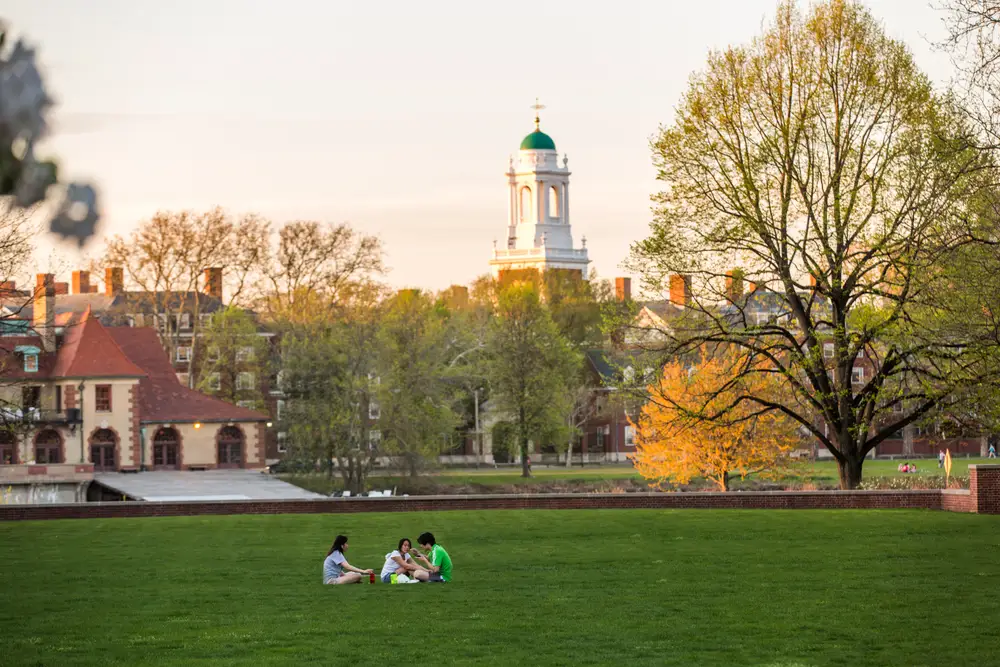5 of the top business schools enrolled fewer minorities in the year since affirmative action was overturned

Harvard Business School reported a slight dip in the number of underrepresented minority students in this year’s cohort.
Five of the most prestigious business schools in the US enrolled fewer underrepresented minority students this year, according to demographic data released since the Supreme Court overturned affirmative action last summer.
Minority enrollment at these five universities — all of which are among the top 10 MBA programs, per Bloomberg’s Businessweek ranking — stands in contrast to a larger trend that saw an overall increase in the number of minority students attending highly ranked business schools this year.
Bloomberg analyzed university disclosures of student racial counts and found that the share of Black, Hispanic, Native American, and Pacific Islander students enrolled in top MBA programs for the Class of 2026 actually represents an increase over the previous two years.
The analysis comes more than a year after the Supreme Court voted to ban universities from considering race in admissions, effectively ending affirmative action. For four decades, the practice allowed universities to give additional weight to applicants who belonged to groups that have historically been the subject of discrimination.
Fifteen of the 18 highest-ranked universities disclose racial breakdowns of their MBA programs. Of those 15, six saw a notable increase in the number of underrepresented minority students represented in their matriculating 2024 classes, Bloomberg found.
Four programs saw slight upticks, though those increases were across total enrollment, which includes international students, meaning the share of minority US students either did not change or fell slightly, according to the outlet’s analysis.
Five of the most prestigious business schools, however, reported fewer underrepresented minorities in this year’s newest class compared to last year’s entering cohort: Harvard Business School, The University of Pennsylvania’s Wharton School, Stanford Graduate School of Business, Northwestern’s Kellogg School of Management, and MIT Sloan School of Management.
Representatives for the five universities did not immediately respond to B-17 request for comment.
Harvard, which ranks sixth in Bloomberg’s list, reported a 1.3% decrease in underrepresented minorities in this year’s matriculating class, down from a total share of 12.9% in last year’s cohort, Bloomberg found.
No. 7-ranked Wharton saw its share of underrepresented minorities dip 2% with this year’s cohort, while No. 1-ranked Stanford’s newest class is down 3.6% year-over-year, according to the outlet.
Northwestern’s Kellogg School of Management, meanwhile, which is ranked third, fell 5.6%, with underrepresented minorities representing 4.2% of the school’s Class of 2026, the analysis found. Kellogg’s Black student enrollment dropped from 20 students to five this year, and its Hispanic population fell by nearly half, Bloomberg reported.
A spokesperson for Kellogg, in comments to Bloomberg, attributed the decrease to a yield problem, saying the university accepted the same number of underrepresented minority students as it usually does, but they chose not to enroll.
MIT Sloan’s share of underrepresented minority students in this year’s entering class fell 5.7% from the Class of 2025’s 14.2 minority makeup.
While these five programs reported decreases in underrepresented minorities, this year’s demographic data seems to suggest that the loss of affirmative action did not necessarily lead to less diverse cohorts.
For example, Duke’s Fuqua School of Business and UC Berkeley’s Haas School of Business both reported an 8.2% increase in the share of underrepresented minorities enrolled this year.




